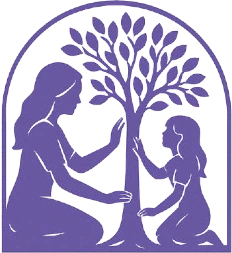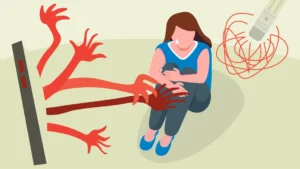ADHD isn’t just about hyperactivity—it’s a neurodevelopmental condition that affects focus, impulse control, and regulation of emotions. Whether you’re a parent navigating a child’s diagnosis or an adult finally understanding your own traits, support and success are possible at every stage of life.
What Is ADHD?
ADHD (Attention-Deficit/Hyperactivity Disorder) includes patterns of inattention, hyperactivity, and impulsivity that interfere with functioning or development.
Types of ADHD:
- Inattentive Type: Easily distracted, forgetful, trouble organizing
- Hyperactive-Impulsive Type: Fidgeting, restlessness, impulsive behavior
- Combined Type: A mix of both patterns
Myths vs Facts:
Myth: ADHD is a lack of discipline.
Fact: It’s a brain-based condition requiring understanding, not blame.
ADHD in Children
Signs in Early Childhood:
- Trouble sitting still or focusing
- Interrupting or acting without thinking
- Difficulty completing tasks or following instructions
Challenges in School and Social Settings:
Many children with ADHD struggle academically and socially. They may be mislabeled as lazy, disobedient, or disruptive.
How I Support Children:
Through play therapy, routine structuring, and collaboration with parents and teachers, I help children build self-regulation and confidence.
ADHD in Adolescents
As kids grow, symptoms may evolve into more subtle but still challenging forms—like poor time management, disorganization, or emotional lability.
Risk Behaviors like reckless driving, substance use, or defiance may emerge if support is lacking.
Therapy Approaches for Teens:
- Developing executive function skills
- Emotional support around identity and peer relationships
- Managing impulsivity and school demands
ADHD in Adults
Many adults never receive a diagnosis until later in life. ADHD in adults can look like chronic lateness, difficulty with follow-through, or emotional burnout.
How It Shows Up:
- Forgetting appointments, losing things
- Trouble focusing in conversations or meetings
- Impulse shopping or difficulty with finances
Therapeutic Support for Adults:
I offer structured, compassionate guidance through CBT, time-tracking tools, and emotional regulation strategies.
Co-Occurring Conditions and Misdiagnosis
ADHD often overlaps with:
- Anxiety and Depression
- Learning Disabilities (e.g., dyslexia)
- Autism Spectrum Traits
Many girls and women are misdiagnosed or overlooked due to quieter symptoms like daydreaming or anxiety.
How ADHD Affects Relationships and Daily Life
- In Relationships: Miscommunication, forgetfulness, or intensity can strain family or romantic bonds
- At Work or School: Missed deadlines or difficulty organizing can impact performance
- Emotionally: ADHD often leads to self-esteem issues, frustration, or shame
Therapeutic Tools and Strategies
- CBT (Cognitive Behavioral Therapy): Helps challenge unhelpful thought patterns
- ADHD Coaching: Offers step-by-step planning, goal setting, and accountability
- Mindfulness: Enhances focus and self-awareness
Creating routines, checklists, and using visual reminders also greatly help in managing symptoms.
Tips for Parents and Caregivers
- Build structured routines and predictable transitions
- Use visual charts or timers
- Celebrate small wins—positive reinforcement works better than punishment
- Partner with teachers to ensure accommodations and consistency
FAQs About ADHD
Is ADHD just a childhood disorder?
No, it can continue into adulthood and often gets diagnosed later due to shifting symptoms.
Can diet and lifestyle help ADHD?
Yes. Regular sleep, exercise, and a low-sugar, protein-rich diet can support attention and energy regulation.
Do all kids with ADHD need medication?
Not always. Medication can help, but therapy, coaching, and environment changes are also key.
How is ADHD different in girls?
Girls often show more inattentiveness and internalized symptoms, leading to underdiagnosis.
Can adults be diagnosed later in life?
Absolutely. Many adults realize they have ADHD after a child’s diagnosis or struggling for years.
How can therapy help ADHD?
Therapy builds coping tools, self-awareness, and systems to manage time, tasks, and emotions effectively.






